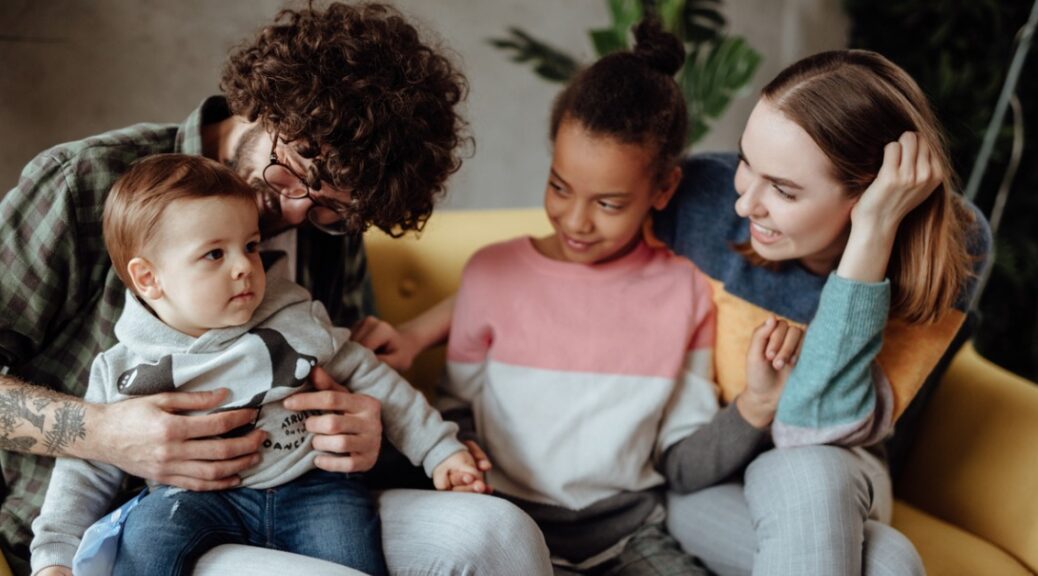Foster Parenting: Expectations vs. Reality

Becoming a foster parent, like any kind of caregiving, is both complex and rewarding, challenging and gratifying. Even with all the information available about the foster caregiving experience, countless unknowns remain. Each child is different, each family is different, each scenario is different . . . the list goes on. Many people wonder about the reality of foster care.
As an adoptive parent of two children, Cheri Norton, Social Work Supervisor with KVC Missouri, reflects that through the fostering experience, “The reality versus the expectations change every day.” It is necessary to be flexible and adaptive to the children and the changing personal environment. Keeping an open mind and allowing the process to unfold can help in managing expectations between parents and children.
Like many caregiving experiences, real life often looks different from our expectations. As we mark Foster Care Awareness Month, let’s dive in: What are some common expectations when starting foster care? And how does reality measure up?
Parenting Abilities for Handling Trauma
Children placed in the foster care system have typically experienced some form of trauma in the past. Although resilient, research shows that youth in foster care have increased rates of trauma exposure. This can lead to unexpected, challenging behaviors.
Expectation:
With the likelihood that a child in foster care will need assistance dealing with trauma, there can be an expectation that foster parents won’t have the proper tools for handling trauma or mental health challenges, making it difficult to provide appropriate support. You might worry you can’t help a child handle the trauma they’ve experienced. You might feel some anxiety about how that trauma has impacted them and the behaviors that may result from it.
Reality:
While there is no one-size-fits-all plan for navigating trauma, support and resources are available. Foster parenting classes, like those we offer at KVC, are available to aid in preparing for the complicated but heartwarming responsibility of foster care. These classes help parents learn about trauma-informed care and how best to support children facing mental health challenges. In addition, the child, biological family and foster parents will be involved in ongoing therapies to help improve the situation for everyone involved.
Even seasoned foster parents, or those who have worked in foster care, have expectations that are usually challenged with different foster cases. “You think you know everything beforehand, but once you’re actually in the thick of it, you realize you don’t know it all,” explains Norton. Foster parents quickly learn that their parenting skills change and grow along with their ability to handle trauma.
Bonding with the Children
 Establishing and keeping trust is an ongoing process as a foster parent. To form a healthy bond, children need to feel like they can count on their foster parent and family. This will usually require extra patience, dedication, communication and consistency, but will be so rewarding once a bond is created.
Establishing and keeping trust is an ongoing process as a foster parent. To form a healthy bond, children need to feel like they can count on their foster parent and family. This will usually require extra patience, dedication, communication and consistency, but will be so rewarding once a bond is created.
Expectation:
In quite a few instances, foster parents worry that bonding with the child in their care will be difficult. But with that also comes the fear that once bonding happens, they may be heartbroken when it’s time for reunification.
Reality:
Bonding can be difficult in foster situations, but it’s important to remain patient and consistent when forming deeper relationships. While bonding may prove difficult, letting go can also be challenging.
Norton mentions that she considered not being a foster parent because she’d get too attached to the children. However, she wouldn’t trade the time spent fostering and nurturing a healthy connection with each child to take away the loss that often accompanies it. “We need people to be able to care for children who can celebrate and grieve when children are reunited,” she says.
Feeling Alone on the Fostering Journey
Becoming a foster parent is a very personal choice. Some choose to foster children because they are not physically able to have children of their own but want an opportunity to share their love and care. Others choose to foster because they can make an immensely positive impact on a child and want to dedicate themselves to the cause. And there are dozens of reasons beyond these, from wanting to make a difference in your community to simply wanting to share love. Regardless of the reason someone may choose to foster a child, the reality of foster care is that they will need the support of others.
Expectation:
With so many misconceptions surrounding foster care, many people think others will not understand their choice to become foster parents. Because of this, they feel like they will be alone on this journey without the help and support they need.
Reality:
 A support system is necessary. Some friends and family will show support and genuine interest in the children and immediately treat them like family. Of course, foster families will have other types of support, like caseworkers and therapists, but this support usually comes with a scheduled appointment. Since it is sometimes difficult for others to relate to a foster parent without going through it themselves, meeting up with another foster family or foster parent support group can feel like all the support a parent needs.
A support system is necessary. Some friends and family will show support and genuine interest in the children and immediately treat them like family. Of course, foster families will have other types of support, like caseworkers and therapists, but this support usually comes with a scheduled appointment. Since it is sometimes difficult for others to relate to a foster parent without going through it themselves, meeting up with another foster family or foster parent support group can feel like all the support a parent needs.
Facilitating a Relationship with Biological Parents
Reunification is the ultimate goal in the majority of foster care cases. Studies show that reunification with biological families is often in the child’s best interest and can improve overall permanency results for parents and children.
Expectation:
Foster parenting classes often help prepare parents for the reunification process, but that doesn’t stop foster parents from expecting it to be difficult to create a relationship with a child’s biological family. Even with the knowledge from the classes, emotions about a child’s background and what they may have been through can feel like a rollercoaster.
Reality:
Many foster parents find the opposite happens. In reality, many biological families are thankful for the love and care foster families show to their children. While working through reunification, both sets of parents are working in the child’s best interest, and supportive relationships can form. “At the beginning, I was nervous about working with birth families. But while co-parenting, connections are made, and people can become more like a real family,” says Norton.
Foster Care Reality: It’s A Life-Changing Experience
While foster parents may have certain expectations and perceptions of what they think the experience will be like, it’s also likely you may have no idea! There can be several expectations foster parents have before and during their experience. It’s also possible a potential foster parent goes into the experience with a blank slate. Either way, here are a few helpful perspectives to manage expectations throughout your journey:
- Expect that mistakes are bound to happen
- Expect that you will need help and support from others
- Expect that anything can happen and embrace the flexibility
- Expect that it will be a life-changing experience for both the child and the caregivers
Foster parents play an important role in supporting children and families during a difficult time in their life. Foster parents help children recover from abuse, neglect or other family challenges and provide education, medical care and support. Learn more about how you can help support a child in need by becoming a foster parent.





